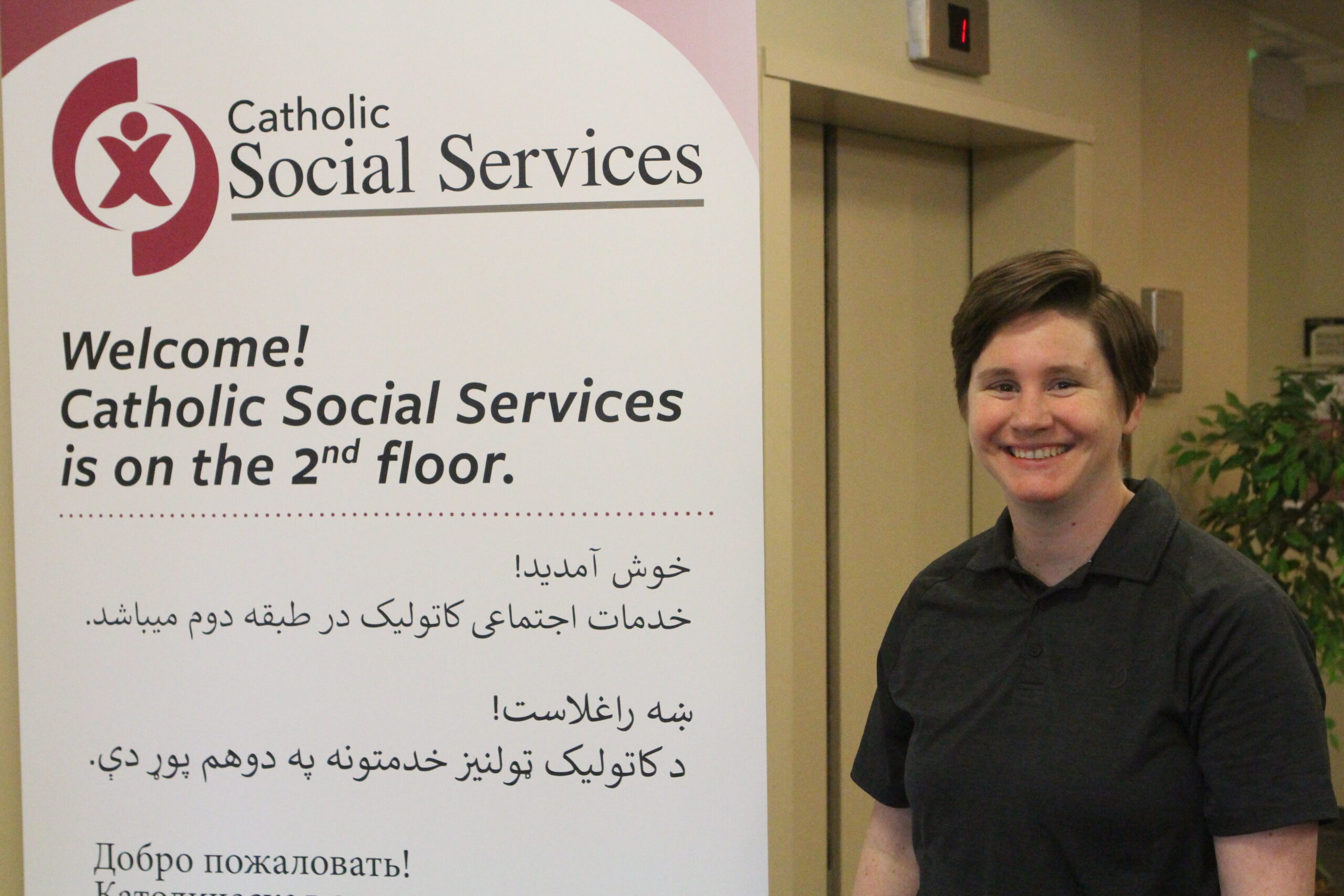
The number of refugees settling in Alaska has sharply increased in recent years. Alaska used to average about 150 refugees a year, with numbers as low as 22 during the peak of the coronavirus pandemic.
Recently, that number has jumped exponentially, largely driven by conflicts in Afghanistan and Ukraine, said Issa Spatrisano, the state refugee coordinator for Alaska.
“In fiscal year ‘22, we had 497,” she said. “And then in fiscal year ‘23, which had been last year, we had about 485. And now we’re in fiscal year ‘24, and we’re probably on track to hit around 400 or 500.”
Spatrisano works for Catholic Social Services, the nonprofit that handles refugee resettlement in Alaska. The historic increase in refugees and other new arrivals prompted the organization to host the state’s first-ever resettlement conference in Anchorage last week.
Spatrisano said the rise in refugees has also meant a rise in federal funding, it more than tripled last fiscal year to $11 million compared to the year prior, and the number of service providers has grown. The conference was a chance for the providers and other key stakeholders to all be in one place.
“There’s been news stories about how people are in Delta Junction and how people are in Wasilla,” Spatrisano said. “But we went from one refugee health screening clinic to five refugee health screening clinics, you know. We went from one school district to three school districts taking money. And so we need to get those people together.”
Spatrisano said attendees heard from a variety of organizations, including state offices of public assistance and labor, volunteer organizations and federal officials.
“Just hearing from people directly, who are working in all these different capacities around the state, to contribute to refugee health and well being and welcome, it was so fascinating,” Spatrisano said. “And it’s like, my whole job is to do this, and so I have to imagine that everyone else there was just as fascinated by what they were learning. Because I might be the person in the state that knows the most, and even I learned a ton of new things.”
Some of the things she learned included how some programs are teaching English to immigrants using Alaska Native culture, the role the federal government plays and the impact refugees have on the labor force. At a time when the state is struggling to hire workers, Spatrisano said, refugees could fill that gap.
“Go to a hotel in town, go to a restaurant in town, go to find out who’s tiling your bathrooms,” she said. “They’re probably refugees who are resettled or Ukrainians who have arrived. But not just those entry level jobs, we’re also really focused on people getting back into those highly skilled jobs.”
Looking forward, Spatrisano said her office is looking at two major topics. One has to do with how long Ukrainian refugees will be allowed to stay in the country. She said those refugees are here under what’s called a two-year humanitarian parole status, and those statuses need to be reauthorized.
“That needs to be kind of resolved,” Spatrisano said. “Like, are we going to let people stay? Are we not going to let people stay? Is the expectation still when the war ends, that they’re all going to go back to Ukraine? Is there a hope that maybe Congress is going to act and allow them to stay indefinitely? I think that’s an important question for the state of Alaska.”
Another hot topic is the upcoming presidential election. Spatrisano said the president has direct control over the number of refugees that can come into the country, and the Biden and Trump administrations have had wide differences in the number of refugees they allowed in.
Wesley Early covers Anchorage life and city politics for Alaska Public Media. Reach him at wearly@alaskapublic.org and follow him on X at @wesley_early. Read more about Wesley here.





